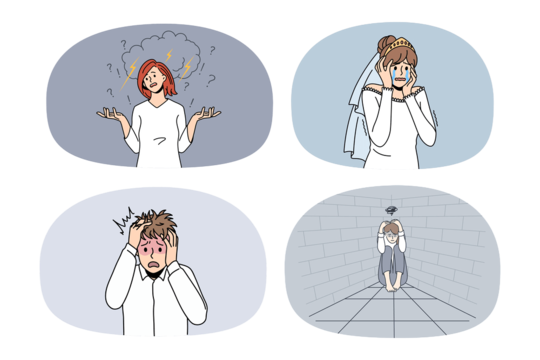+918048809459

This is your website preview.
Currently it only shows your basic business info. Start adding relevant business details such as description, images and products or services to gain your customers attention by using Boost 360 android app / iOS App / web portal.
Mood disorders, particularly when involving the...

Mood disorders, particularly when involving the meninges (the protective layers covering the brain), are rare and complex. However, mood disorders themselves, such as depression, bipolar disorder, or mood changes resulting from other conditions like meningitis or meningoencephalitis, can impact brain function and emotional regulation. Symptoms of Mood Disorders: Persistent sadness or irritability Feelings of hopelessness or worthlessness Changes in sleep patterns (insomnia or excessive sleep) Appetite changes (weight loss or gain) Loss of interest in activities Energy level fluctuations Difficulty concentrating Thoughts of self-harm or suicide (in severe cases) Mood swings (more specific to bipolar disorder, where episodes of depression alternate with manic or hypomanic states) Symptoms When Linked to Meningitis or Related Conditions: Severe headache Neck stiffness Sensitivity to light Fever Confusion or altered mental state These infections can also cause emotional symptoms or mood instability due to brain inflammation. Treatment: Treatment depends on the specific mood disorder and its underlying cause. 1. Medications: Antidepressants for depressive symptoms Mood stabilizers (e.g., lithium, valproate) for bipolar disorder Antipsychotics may be added for severe mood swings or psychosis Anti-inflammatory and antibiotic or antiviral medications are used if an infection is present 2. Psychotherapy: Cognitive Behavioral Therapy (CBT) to address negative thought patterns Dialectical Behavior Therapy (DBT) for mood regulation Interpersonal Therapy to improve relationships and social functioning 3. Lifestyle Interventions: Regular exercise, adequate sleep, and a balanced diet Avoiding alcohol and recreational drugs, as these can worsen symptoms Mindfulness practices or stress-reduction techniques 4. Hospitalization (if needed): For those with severe mood swings, suicidal thoughts, or if the infection is causing neurological symptoms, short-term hospitalization might be necessary. If someone shows signs of mood disorder or neurological symptoms, consulting a mental health professional or neurologist is important for timely intervention and appropriate treatment. contact us Arunoday counseling clinic Indore Madhya Pradesh mental health Therapist psychologist psychotherapist marital councellor

